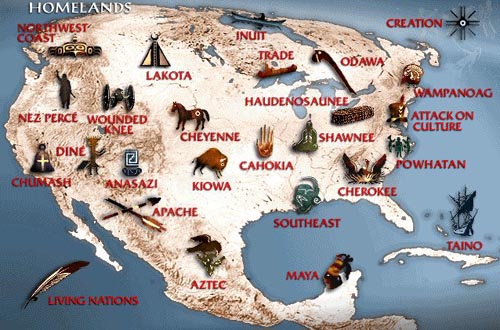A "Cowboys and Indians" party is just as bad as a blackface party
First she posts lots of images to show how "normal" redface is:

Then she explains why we treat redface differently from blackface:
So how does this compare with blackface? In the words of scholar Kimberly Tallbear, "Black and White became a race binary, while White appropriated Red."
Scholars and historians argue that blackface was about creating a white identity that existed in contrast to Black slaves, and asserting power over Black Americans by relegating blackness to defined, extremely stereotypical character tropes. This was done through minstral shows, where whites painted their faces with black paint to perform.
Blackface was about creating an identity in opposition (a binary of Black vs White), while playing Indian was about absorbing "Indianness" into a national identity and narrative.
However, playing Indian still relegates Native peoples to stereotypical character tropes. The images above show one "image" of an Indian--the feathers, the fringe, the warpaint, the braids. Indians are sexy maidens, fierce warriors, peace-loving environmentalists, all holding up their hand to say "How." These characters were solidified through early cinema, where Westerns all seemed to include the helpless Indian maiden and the evil Indian warrior--all played by non-Native actors, of course--and continue through to today (see: oh, every post on this blog).
So, it's clear there are large similarities between blackface and playing Indian--both are intentional acts that draw upon stereotypes and a racist history to enact whiteness--but our Nation has created a narrative in which blackface=racist, while redface=normal.
Does that make it ok to play Indian or host a cowboys and Indians theme party? Absolutely not. It just goes to show how deeply the erasure of Native peoples runs.
By dressing up and calling ourselves Indians, we softened the guilt over our genocidal actions. While the real Indians "vanished," we took their place figuratively as well as literally. "They're Indians, we're Indians," the thinking went. "This land is their land, this land is our land."
And a few decades later: "They're gone, we remain. We inherited America from them. We didn't do anything wrong; we simply outlasted them. That some 'species' go extinct and others replace them is the natural order of things. Now we're the owner/occupants of America--the new 'Native' Americans."
And "playing Indian" reinforces that message: "We're them and they're us. We 'honor' them for holding the land in escrow until we could use it productively. They were noble caretakers in their own savage way. Now that they're gone, we owe it to them to preserve
The fallacies in this thinking are obvious. One, the Indians weren't predatory animals like wolves or bears who had no claim to the land. Two, they didn't give up their land willingly. We stole it from them by breaking the treaties we signed. Three, they aren't gone. They're still here, like any other people, and still demanding their legal rights. The "we innocently took over from them" narrative is utterly false.
For examples of "cowboys 'n' Indians" events, see:
"Conquistabros and Navajos" invitation
UC Irvine's "Pilgrims and Indians Party"
"Drink like an Indian" at Station 280
Miami's 68th annual "Indian Party"
"Firewater Friday" at University of Washington
For more on why these events are wrong, see:
Stereotypes as mental maps
Stereotypes okay in "cultural commons"?


No comments:
Post a Comment